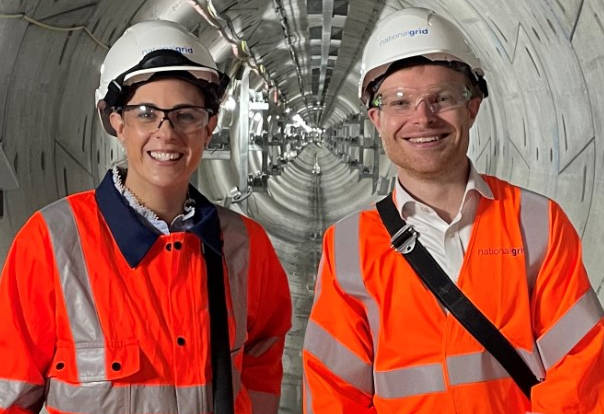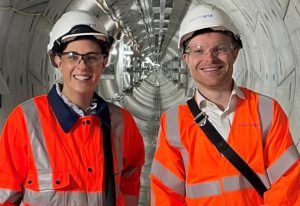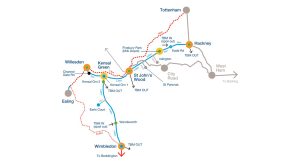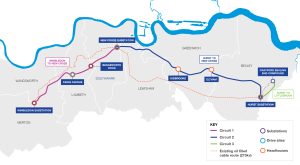
“The previous cables between Hurst and Crayford were reaching the end of their operational life, having been commissioned in 1967 and having served London reliably for decades,” according to National Grid, which explained: “While the old cables were buried in shallower trenches in the streets, the LPT2 network carries power in three metre wide tunnels deep beneath the road network.”
Energy minister Michael Shanks was up the line at the New Cross sub-station for the switch-on.
“The London Power Tunnels show British infrastructure at its best and I congratulate the efforts of everyone involved,” he said.

New Cross is at the centre of two double circuits: 12km to Wimbledon’s sub-station and 18km to Hurst.
LPT2 tunnels are connected to the surface by vertical shafts between 9m and 15m wide and up to 55m deep, each covered by a head-house.
Also under construction now is the Bengeworth Road sub-station, which will use SF6-free switch gear – SF6 has one of the worst global warming ratings of all chemicals, rated at ~23,000 times worse than CO2, and is virtually indestructible.








